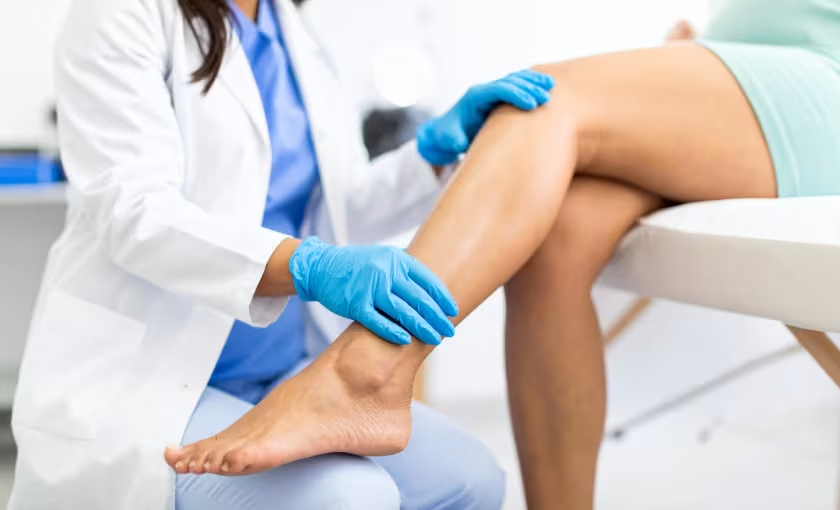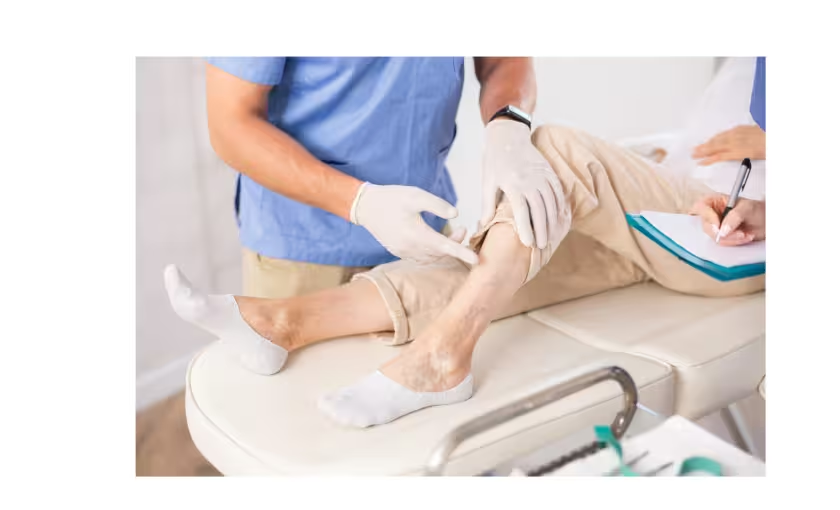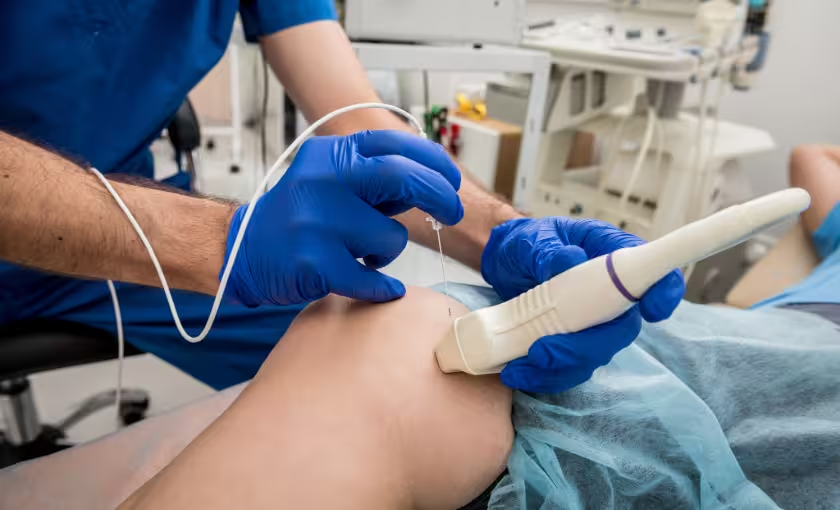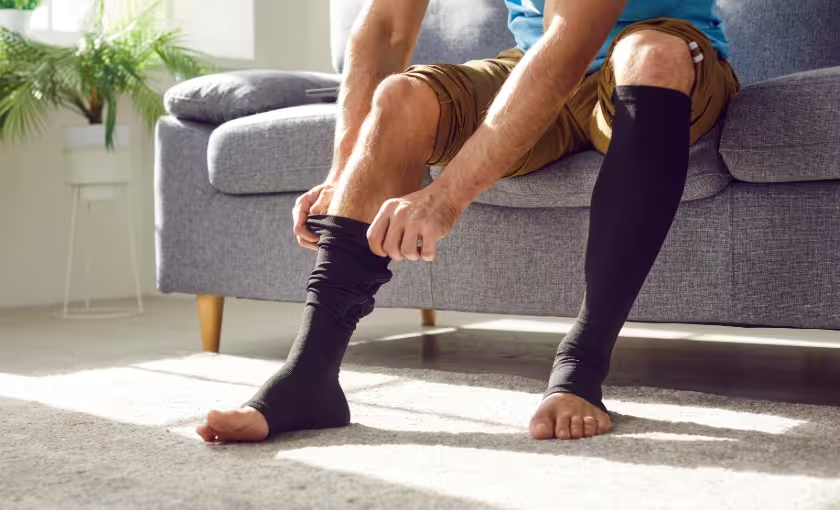Vein Health During Pregnancy: A Complete Guide for Expectant Mothers

Pregnancy brings many wonderful changes to a woman's body, but it also creates unique challenges for vascular health that can lead to the development of varicose veins, spider veins, and other venous problems. Understanding how pregnancy affects the venous system and implementing appropriate preventive measures can help expectant mothers maintain healthier legs and reduce the risk of developing problematic veins during this transformative time.
The changes that occur during pregnancy create a perfect storm of conditions that can contribute to vein problems, including hormonal fluctuations, increased blood volume, physical pressure from the growing uterus, and changes in circulation patterns. While these changes are necessary for supporting a healthy pregnancy, they can significantly impact the venous system and lead to the development of new vein problems or worsening of existing ones.
BASS Vein Center's extensive experience caring for pregnant women with vein problems has provided valuable insights into the unique challenges of maintaining vascular health during pregnancy and the most effective strategies for prevention and management. This expertise helps expectant mothers understand what to expect, how to protect their vascular health, and when professional intervention may be beneficial.
How Pregnancy Affects the Venous System
Pregnancy creates multiple physiological changes that can significantly impact the venous system, making expectant mothers more susceptible to developing varicose veins, spider veins, and other venous problems. Understanding these changes helps women recognize why vein problems are so common during pregnancy and what can be done to minimize their impact.
Hormonal changes during pregnancy have profound effects on the venous system, with increased levels of progesterone causing relaxation of smooth muscle in blood vessel walls. This hormonal influence makes veins more prone to dilation and can weaken the function of venous valves, leading to increased risk of venous reflux and the development of varicose veins.
The hormone relaxin, which helps prepare the body for childbirth by relaxing ligaments and joints, also affects blood vessel walls and can contribute to venous dilation. These hormonal effects begin early in pregnancy and continue throughout the gestational period, creating ongoing challenges for venous health.
Increased blood volume during pregnancy, which can increase by 40-50% by the third trimester, places additional stress on the venous system as it works to return this larger volume of blood to the heart. This increased volume contributes to higher venous pressure and can overwhelm the capacity of weakened venous valves.
Physical pressure from the growing uterus creates mechanical compression of the major veins that return blood from the legs, particularly the inferior vena cava and iliac veins. This compression can impede venous return and increase pressure in the leg veins, contributing to the development of varicose veins and related symptoms.
Weight gain during pregnancy adds additional pressure to the leg veins and can further compromise venous return. The recommended weight gain during pregnancy varies depending on pre-pregnancy weight, but even normal weight gain can contribute to increased venous pressure and vein problems.
Changes in activity levels during pregnancy can also affect venous health, as reduced physical activity can decrease the muscle pump action that helps move blood through the venous system. Conversely, some pregnant women may experience increased activity-related symptoms as their venous system struggles to cope with the additional demands.
Common Vein Problems During Pregnancy
Pregnancy can lead to the development of various types of vein problems, ranging from minor cosmetic concerns to more significant issues that can affect comfort and mobility. Understanding these common problems helps expectant mothers recognize what to watch for and when to seek professional guidance.
Varicose veins are among the most common vein problems during pregnancy, affecting up to 40% of pregnant women, particularly during their first pregnancy. These enlarged, twisted veins typically appear on the legs and can range from small, barely visible vessels to large, bulging veins that cause significant discomfort and cosmetic concerns.
The development of varicose veins during pregnancy often follows a predictable pattern, with many women first noticing them during the second trimester as hormonal changes and physical pressure from the growing uterus begin to take effect. These veins may worsen throughout the pregnancy and can become quite prominent by the third trimester.
Spider veins, those small, web-like clusters of red, blue, or purple veins near the skin's surface, are also common during pregnancy and may appear on the legs, face, or other areas of the body. While typically less symptomatic than varicose veins, spider veins can be cosmetically concerning and may persist after delivery if not properly addressed.
Vulvar varicosities represent a unique type of vein problem that can develop during pregnancy, affecting the external genital area and causing significant discomfort, pressure, and cosmetic concerns. These varicose veins in the vulvar area can be particularly bothersome and may interfere with daily activities and comfort.
Hemorrhoids, which are essentially varicose veins of the rectum and anus, are extremely common during pregnancy due to increased pressure from the growing uterus and hormonal changes that affect venous function. These can cause significant discomfort, bleeding, and other symptoms that can impact quality of life.
Leg swelling and heaviness are common symptoms associated with pregnancy-related vein problems and can significantly impact comfort and mobility. This swelling typically worsens throughout the day and may be accompanied by aching, fatigue, and other symptoms that can interfere with daily activities.
Risk Factors and Predisposing Conditions
While pregnancy itself creates risk factors for vein problems, certain additional factors can increase the likelihood of developing significant venous issues during pregnancy. Understanding these risk factors helps identify women who may benefit from more aggressive preventive measures.
Family history of vein problems represents one of the strongest risk factors for developing pregnancy-related vein issues. Women whose mothers, sisters, or other female relatives have had varicose veins or other vein problems during pregnancy are at significantly increased risk of experiencing similar problems.
Previous pregnancies increase the risk of vein problems with each subsequent pregnancy, as the cumulative effects of multiple pregnancies can progressively weaken the venous system. Women who developed vein problems during previous pregnancies are likely to experience recurrence or worsening with future pregnancies.
Pre-existing vein problems, even if mild, can worsen significantly during pregnancy due to the additional stresses placed on the venous system. Women who have spider veins or early varicose veins before pregnancy should be particularly vigilant about preventive measures.
Age at pregnancy can influence the risk of developing vein problems, with older mothers generally at higher risk due to age-related changes in the venous system combined with the stresses of pregnancy. However, vein problems can occur at any age during pregnancy.
Multiple pregnancies (twins, triplets, etc.) create additional stress on the venous system due to greater hormonal changes, increased blood volume, and more significant physical pressure from the enlarged uterus. Women carrying multiple babies should be especially attentive to vein health and preventive measures.
Occupational factors that involve prolonged standing or sitting can exacerbate pregnancy-related vein problems by further compromising venous return and increasing pressure in the leg veins. Pregnant women in these occupations may need to make workplace modifications to protect their vascular health.
Prevention Strategies During Pregnancy
Implementing effective prevention strategies during pregnancy can significantly reduce the risk of developing vein problems and minimize the severity of any issues that do occur. These strategies focus on supporting healthy circulation, reducing venous pressure, and minimizing the factors that contribute to vein problems during pregnancy.
Regular, appropriate exercise during pregnancy provides significant benefits for venous health by promoting circulation, strengthening the muscle pump mechanism, and helping manage weight gain. Walking, swimming, and prenatal yoga are excellent choices for maintaining circulation and supporting venous health during pregnancy.
The type and intensity of exercise should be appropriate for each stage of pregnancy and individual fitness level, with modifications made as pregnancy progresses. Even gentle activities like walking can provide significant benefits for circulation and vein health when performed regularly.
Compression stockings represent one of the most effective preventive measures for pregnancy-related vein problems, providing external support that helps counteract the increased venous pressure and hormonal effects that contribute to vein problems. Graduated compression stockings can significantly reduce the risk of developing varicose veins and help manage symptoms if they do occur.
The selection of appropriate compression stockings during pregnancy requires consideration of changing body size, comfort needs, and the specific areas that need support. Maternity compression stockings are designed to accommodate the changing shape of pregnant women while providing effective compression.
Position and movement modifications can help reduce venous pressure and support healthy circulation during pregnancy. Avoiding prolonged standing or sitting, elevating the legs when possible, and changing positions frequently can help minimize the risk of vein problems.
Sleeping position becomes increasingly important as pregnancy progresses, with sleeping on the left side helping to reduce pressure on the major veins and improve circulation. Using pillows to support the legs and abdomen can help maintain comfortable positioning while supporting venous return.
Weight management within recommended guidelines helps minimize the additional pressure on the venous system while supporting overall health during pregnancy. Following healthcare provider recommendations for appropriate weight gain helps reduce the risk of vein problems while ensuring adequate nutrition for mother and baby.
Managing Existing Vein Problems During Pregnancy
For women who develop vein problems during pregnancy or who have pre-existing venous issues, appropriate management strategies can help minimize symptoms, prevent progression, and maintain comfort throughout the pregnancy. Understanding these management approaches helps women work with their healthcare providers to develop appropriate care plans.
Conservative management approaches are typically the first line of treatment for pregnancy-related vein problems, focusing on symptom relief and prevention of progression rather than definitive treatment, which is usually delayed until after delivery. These approaches can be highly effective for managing symptoms and maintaining comfort.
Compression therapy remains the cornerstone of conservative management for pregnancy-related vein problems, providing external support that helps reduce symptoms and may slow the progression of venous issues. Proper fitting and consistent use of compression garments are essential for optimal benefits.
Activity modifications may be necessary for pregnant women with significant vein problems, including avoiding prolonged standing, taking frequent breaks to elevate the legs, and modifying work or exercise routines as needed to reduce symptoms and prevent worsening.
Symptom management strategies can help maintain comfort and quality of life for pregnant women dealing with vein problems. These may include pain relief measures, techniques for managing swelling, and approaches for dealing with the cosmetic concerns that can affect self-confidence.
Monitoring for complications is important for pregnant women with vein problems, as certain complications, such as blood clots or severe swelling, may require immediate medical attention. Understanding warning signs and maintaining regular communication with healthcare providers helps ensure prompt treatment if complications occur.
Professional guidance from healthcare providers experienced in managing pregnancy-related vein problems can provide valuable support and ensure that management strategies are safe and appropriate for both mother and baby. Regular monitoring and adjustment of management approaches may be necessary as pregnancy progresses.
When to Seek Professional Help
Knowing when to seek professional help for vein problems during pregnancy is important for ensuring appropriate care and preventing complications. While many pregnancy-related vein issues can be managed conservatively, certain situations warrant professional evaluation and intervention.
New or worsening vein problems during pregnancy should be evaluated by healthcare providers to assess their severity and develop appropriate management strategies. Early intervention can help prevent progression and minimize the impact on comfort and quality of life.
Significant symptoms such as severe pain, extensive swelling, or skin changes around varicose veins may indicate more serious venous problems that require professional evaluation and management. These symptoms should not be dismissed as normal pregnancy changes.
Signs of complications, including signs of blood clots (such as sudden onset of severe leg pain, swelling, or redness), skin ulceration, or bleeding from varicose veins, require immediate medical attention. These complications can be serious and require prompt professional intervention.
Functional limitations caused by vein problems, such as difficulty walking, standing, or performing daily activities, warrant professional evaluation to determine if additional interventions might be beneficial for maintaining quality of life during pregnancy.
Cosmetic concerns that significantly impact self-confidence and emotional well-being may also warrant professional consultation, as healthcare providers can provide reassurance, management strategies, and information about post-pregnancy treatment options.
Planning for post-pregnancy treatment may be appropriate for women with significant vein problems during pregnancy, as early planning can help ensure prompt treatment after delivery when definitive interventions become appropriate.
Post-Pregnancy Considerations
Understanding what to expect after delivery and planning for post-pregnancy vein care helps women make informed decisions about their long-term vascular health. While some pregnancy-related vein problems may improve after delivery, others may persist and require treatment.
Natural improvement after delivery occurs for some women, particularly those who developed vein problems for the first time during pregnancy. The reduction in blood volume, hormonal changes, and relief of physical pressure from the uterus can lead to significant improvement in venous symptoms and appearance.
The timeline for improvement varies among women, with some noticing improvement within weeks of delivery while others may take several months to see significant changes. Breastfeeding can affect this timeline due to ongoing hormonal influences.
Persistent problems may require treatment if vein issues do not improve adequately after delivery or if they continue to cause symptoms or cosmetic concerns. Modern treatment options are highly effective for addressing post-pregnancy vein problems and can provide excellent results.
Treatment timing considerations include waiting an appropriate period after delivery to allow for natural improvement before pursuing definitive treatment. Most specialists recommend waiting at least 3-6 months after delivery, and longer if breastfeeding, before considering treatment options.
Prevention of future problems during subsequent pregnancies can be enhanced by addressing existing vein problems between pregnancies and implementing aggressive preventive measures during future pregnancies. Women who have had vein problems during one pregnancy are at increased risk for recurrence.
Long-term vascular health planning should consider the cumulative effects of multiple pregnancies on the venous system and the importance of maintaining healthy lifestyle habits that support vascular function throughout life.
Nutrition and Lifestyle Factors
Proper nutrition and healthy lifestyle choices during pregnancy can support vascular health and may help reduce the risk of developing vein problems or minimize their severity. Understanding these factors helps pregnant women make informed choices that benefit both their vascular health and overall pregnancy wellness.
Nutritional considerations that support vascular health during pregnancy include adequate intake of vitamins and minerals that support blood vessel function, such as vitamin C for collagen synthesis, vitamin E for antioxidant protection, and flavonoids for vascular support.
Hydration is particularly important during pregnancy for maintaining healthy circulation and blood viscosity. Adequate fluid intake helps ensure optimal blood flow and may help reduce the risk of blood pooling that can contribute to vein problems.
Dietary fiber helps prevent constipation, which can increase abdominal pressure and contribute to vein problems during pregnancy. A diet rich in fruits, vegetables, and whole grains provides adequate fiber while supporting overall health.
Salt intake management can help reduce fluid retention and swelling that may exacerbate vein problems during pregnancy. Following healthcare provider recommendations for sodium intake helps maintain an appropriate fluid balance.
Weight management within recommended guidelines helps minimize additional pressure on the venous system while ensuring adequate nutrition for healthy pregnancy outcomes. Working with healthcare providers to achieve appropriate weight gain supports both vascular health and pregnancy wellness.
Avoiding harmful substances such as tobacco and excessive alcohol supports vascular health and overall pregnancy outcomes. These substances can affect circulation and blood vessel function, potentially exacerbating vein problems during pregnancy.
Emotional and Psychological Aspects
Pregnancy-related vein problems can have significant emotional and psychological impacts that extend beyond their physical symptoms, affecting self-confidence, body image, and overall well-being during an already emotionally challenging time. Understanding and addressing these aspects is important for comprehensive care.
Body image concerns related to the development of varicose veins or spider veins during pregnancy can be particularly challenging as women are already adjusting to many physical changes. These concerns are valid and should be addressed with understanding and appropriate support.
Self-confidence issues may develop as visible vein problems affect how women feel about their appearance, potentially leading to avoidance of certain activities or clothing choices. Addressing these concerns through appropriate management and treatment planning can help maintain confidence.
Relationship impacts can occur when vein problems affect intimacy or self-perception within relationships. Open communication with partners and healthcare providers can help address these concerns and maintain healthy relationships during pregnancy.
Anxiety about progression or complications related to vein problems during pregnancy is common and should be addressed through education, reassurance, and appropriate monitoring. Understanding what to expect and having a management plan can help reduce anxiety.
Support systems, including family, friends, and healthcare providers, play important roles in helping women cope with the emotional aspects of pregnancy-related vein problems. Having access to understanding and supportive care can significantly impact overall well-being.
Professional counseling may be beneficial for women who experience significant emotional distress related to pregnancy-related vein problems, particularly if these concerns interfere with daily functioning or pregnancy enjoyment.
Planning for Future Pregnancies
Women who have experienced vein problems during pregnancy should consider how these issues might affect future pregnancies and what steps can be taken to minimize problems in subsequent pregnancies. Understanding these considerations helps with family planning and vascular health management.
Risk assessment for future pregnancies should consider the severity of vein problems experienced during previous pregnancies, any persistent issues after delivery, and overall vascular health status. This assessment helps guide preventive strategies for future pregnancies.
Preventive strategies for subsequent pregnancies may include more aggressive use of compression stockings, earlier implementation of lifestyle modifications, and closer monitoring for the development of vein problems. Learning from previous experiences can help optimize prevention efforts.
Treatment timing between pregnancies may involve addressing persistent vein problems before conceiving again, as treating existing issues can help reduce the risk of worsening during subsequent pregnancies. Planning treatment timing around family planning goals is important.
Genetic counseling considerations may be relevant for women with strong family histories of vein problems or those who have experienced severe pregnancy-related venous complications. Understanding genetic risks can help guide family planning decisions.
Long-term health planning should consider the cumulative effects of multiple pregnancies on vascular health and the importance of maintaining preventive measures and healthy lifestyle habits throughout reproductive years and beyond.
Conclusion: Protecting Your Vascular Health During Pregnancy
Maintaining vascular health during pregnancy requires understanding the unique challenges that pregnancy creates for the venous system and implementing appropriate preventive and management strategies. While pregnancy-related vein problems are common, they are not inevitable, and many can be prevented or minimized through informed choices and appropriate care.
The key to successful vascular health management during pregnancy lies in early recognition of risk factors, implementation of preventive measures, and appropriate management of any problems that do develop. Understanding what to expect and having a plan for addressing vein problems can help maintain comfort and confidence throughout pregnancy.
Modern approaches to managing pregnancy-related vein problems focus on safe, conservative measures that can provide significant symptom relief while protecting both mother and baby. These approaches, combined with planning for post-pregnancy treatment when appropriate, can help ensure optimal outcomes for vascular health.
BASS Vein Center's expertise in managing pregnancy-related vein problems provides expectant mothers with access to specialized knowledge and care that can help protect their vascular health during this important time. The center's understanding of the unique challenges of pregnancy and vein health helps women make informed decisions about their care.
For expectant mothers concerned about vein health during pregnancy, understanding the risks, prevention strategies, and management options provides the foundation for making informed decisions that can protect both current comfort and long-term vascular health. Taking proactive steps to support vascular health during pregnancy can help ensure the best possible outcomes for both mother and baby.
Don't let concerns about vein problems during pregnancy go unaddressed when expert guidance and effective management strategies are available to help protect your vascular health. Contact BASS Vein Center today at (925) 489-1684 to learn more about maintaining vein health during pregnancy and discover how specialized expertise can help you navigate the unique challenges of pregnancy while protecting your long-term vascular wellness. Your journey toward a healthy pregnancy and optimal vascular health begins with understanding your risks and taking proactive steps to protect your well-being.
Take the First Step to Ending Annoying Varicose Vein Discomfort.






.svg)


